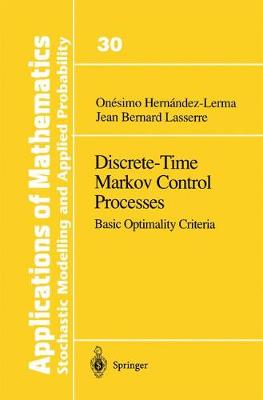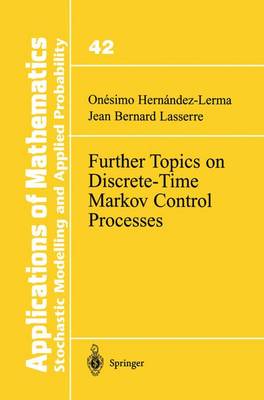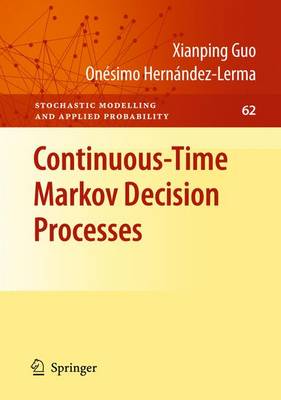Stochastic Modelling and Applied Probability
3 primary works
Book 30
Discrete-Time Markov Control Processes
by Onesimo Hernandez-lerma and Jean B. Lasserre
Book 42
Further Topics on Discrete-Time Markov Control Processes
by Onesimo Hernandez-lerma and Jean B. Lasserre
The control model studied is sufficiently general to include virtually all the usual discrete-time stochastic control models that appear in applications to engineering, economics, mathematical population processes, operations research, and management science.
Book 62
Continuous-Time Markov Decision Processes
by Xianping Guo and Onesimo Hernandez-lerma
Continuous-time Markov decision processes (MDPs), also known as controlled Markov chains, are used for modeling decision-making problems that arise in operations research (for instance, inventory, manufacturing, and queueing systems), computer science, communications engineering, control of populations (such as fisheries and epidemics), and management science, among many other fields. This volume provides a unified, systematic, self-contained presentation of recent developments on the theory and applications of continuous-time MDPs. The MDPs in this volume include most of the cases that arise in applications, because they allow unbounded transition and reward/cost rates. Much of the material appears for the first time in book form.


